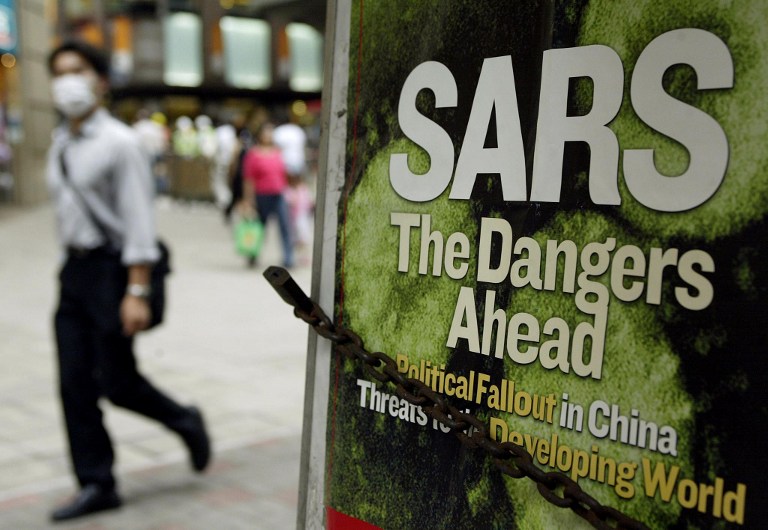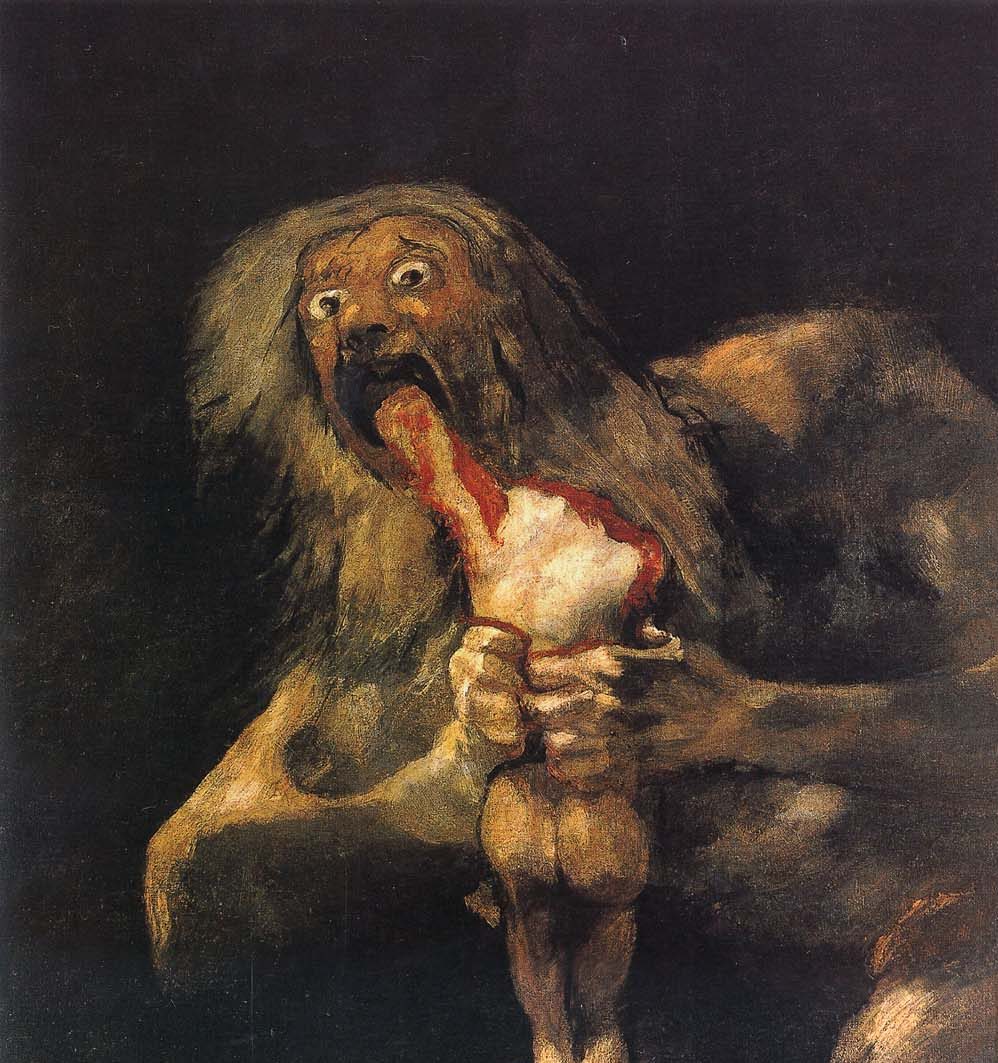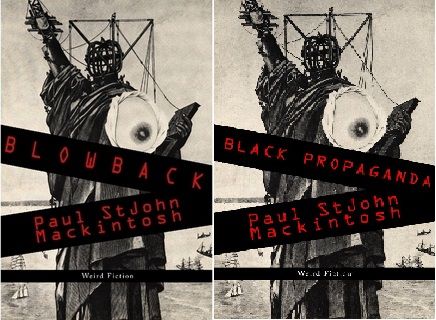Living through SARS

The first inkling I had that the SARS outbreak in Hong Kong in March 2003 was serious was when my colleague turned up to work wearing a heavy filter mask. It wasn’t the discreet courtesy paper rectangle: it was a respirator-style cone with two great round filters on either side. She wore it the entire time as she sat at her desk, lifting it only to eat from her lunchbox.
My first reaction was anger. Here we were, working as a team, supporting each other, exposed to the same work environment, taking the same knocks, sharing the same risks and rewards in our Hong Kong PR agency, and yet here she was treating the rest of us as plague carriers. How could she break the team spirit? The only exoneration I could think of was parental pressure. Like most younger Hong Kongers, she probably lived with her family, forced to share living space by the high property prices. With typical Cantonese family sense, they doubtless had put pressure on her to keep contamination out of the home and screen out the threat from the Outside. That rationale eased my anger only a little.
I had nothing much to leave Hong Kong for in 2003, and by the time I finally realized how serious the situation was, I had lost the opportunity. SARS never quite made it into the pandemic league, since it never spread far enough. Only a score of countries were affected, and the majority of the 8,098 reported cases were in southern China. Still, it caused worldwide panic, and its prognosis was considerably grimmer than coronavirus: an average fatality rate of 9.5% of those infected, compared to at most 3.4% for COVID-19. Left unchecked, it could have killed 670,000 people in Hong Kong alone. And Hong Kong, one of the most densely populated territories anywhere at 6,659 people per square kilometer, was isolated from the rest of the world in 2003 and left to deal with SARS by itself.
Spring in Hong Kong is a humid season, and March 2003 was no exception. With its high population density and inward-looking character, Hong Kong is a claustrophobic environment at the best of times, fomenting cabin fever besides other contagious diseases. The thick low clouds hanging over the city added to the impression of a seething cauldron with the lid crammed down. Already it was effectively impossible to leave the city by any ordinary means. The World Health Organization issued an emergency travel advisory on 15 March, providing “emergency guidance for travellers and airlines.” Many countries were by that time already restricting or refusing to admit flights or passenger traffic from Hong Kong, and the WHO advisory signalled an effective global cordon sanitaire. No one could get out.
Isolation was the strongest and most immediate impression of the outbreak. The sense of imprisonment was as oppressive as the creeping dread of the disease itself. The SARs virus, of course, was invisible, and actual cases were rapidly quarantined. News reports only added to the surreal air of a nightmare you couldn’t waken from. The WHO continued “to recommend no travel restrictions to any destination,” and governments worldwide insisted that there would be no embargo of Hong Kong – while cutting flights, denying entry, and instituting a de facto embargo of ferocious comprehensiveness. Their efficiency contrasted with the Chinese authorities – hustling SARS patients out the back of hospitals when the WHO inspectors came calling, to bring the headline case numbers down. China’s venal autocracy had let the disease get out of hand in the first place, and we knew we could trust nothing that came over the border. The official lies, evasions and half-truths added to the all-pervading sense of unreality. Hong Kong resembled a ghost town, populated by phantoms. Streets were almost empty except for occasional wraithlike figures in masks. Mists and fogs worthy of any Hammer horror film clung to the peaks.
In the circumstances, we knuckled down and rode it out. We simply had no choice but to get on with stuff. We couldn’t get away, and we couldn’t be terrified 24:7. Fortitude came easy in those conditions. Offices stayed open, and work went on, though with precautions. There was never the draconian response in Singapore, where all quarantine cases were required to have a webcam connected at all times and faced random government checks to verify their presence at home, as well as to check and record their temperatures twice daily on camera if required. We went out, we drank, we partied, we went clubbing, because when we were already so much at risk, what did a little more matter? It was defiance, giving the finger to the rest of the world that had conspired, without a formal coordinated policy, to trap us there.
Besides, if we thought we had it bad, there was always someone worse off to compare with – like the residents of Amoy Gardens, the outbreak’s worst hotspot, confined within their apartment buildings behind police cordons while tenant after tenant became infected. As streetwise Hong Kongers, we naturally assumed that the cause lay in shoddy building work by the developer and poor safety standards. Sure enough, most of the contagion was traced to leaking waste pipes spraying waste water into the complex’s breathing air, but not before over 320 people had been infected. In April, the residents were transferred to quarantine camps in remote districts.
Then there were the doctors, nurses and healthcare workers, always the frontline casualties in any battle against disease. You can still see in Hong Kong Park above the harbour a poignant memorial to eight doctors, nurses, and ward attendants who died from the disease while fighting its spread. They were the community’s local heroes, in contrast to the leadership, disdained at the best of times.
Quarantine, like war, is months of boredom punctuated by moments of extreme terror. Add to that frustration. Much of our pushback against the official guidance on self-seclusion in Hong Kong during SARS was pure frustration, rather than deliberately flouting authority. In any event, we had plenty of time to build up a hell of a head of frustration. On 23 May, the WHO lifted its Tourism Warning for Hong Kong and Guangdong, and the moment the informal blockade was lifted, I was on my way to Singapore.
That was our limited little plague over. Hong Kong’s final toll was 1,755 confirmed cases and 299 deaths from SARS. Samples of the SARS virus are still among the few classified as Biosafety level 4 organisms by the US Department of Health and Human Services (HHS), alongside the Ebola and Marburg viruses and ricin.
What were my takeaways from SARS for the coronavirus pandemic? National sovereignty is a great way of ducking your wider responsibilities: that was one. The Communist Party of China can never be trusted to put the lives of its own citizens or the wider global community before its own monopoly on power: that was another. But if I learned any personal lesson from the experience, it was the value of patience. Any courage we showed under SARS was obligatory. We had no choice. We weren’t going anywhere. We had no agency, no power to alleviate the situation. We just had to get through it.
In a society powered by instant gratification, patience and forbearance are habits that take some reacquiring. We’re told constantly that our slightest twinge is worthy of attention, that we’re entitled to have our most insignificant discomforts and discontents pandered to. We confuse our entitlements with our rights. We feel entitled to have our fears pandered to instantly, as with our desires. SARS at least put that in perspective. It helped immunize me against fear. Now at least I’ve been through it and come out the other side. So, hopefully, will most of us
Power and perversion

Power is the most perverted passion of all, far beyond molestation or bestiality. Remember that every time you look at a political figure. More twisted, more insidious, more pervasive, more far-reaching, more damaging, more depraved. Power does not corrupt: power is corrupt. Because the moment we upset the natural balance of power between ourselves, and give any one person power over any other, we unleash their passions as far as that power will allow. And the perverted power-mongers always want more.
Power is perversion. Power is perverse. Yes, you need power to do anything to anyone, or anything at all. We each have our own natural will power. Exactly how strong or weak, no one can measure, certainly not science. Without measurement, for accuracy as well as fairness, we might as well assume that it’s equal. Muscle power, brain power, stamina, health, height, luck, everything that constitutes power at any one time, are all likely to naturally even out in the end. But to take away or reduce someone else’s own natural will power, and autonomy, to take power over them, is already unnatural, a distortion of the natural order. It twists things out of true. No wonder perverts love to do it. And the more perverted they are, the more power they want to acquire.
Sadistic abuses are mostly about power first, and any satisfaction after. The specific satisfaction is a turn-on purely because it’s a manifestation of power, whether power over someone smaller, weaker, or less mature, or power to hurt and maim. What the abuser wants ultimately is power itself – the supposed fulfillment is an afterthought. And the purest embodiment of that perversion is the sociopath, without empathy or affect. In their dead-eyed, empty lives, the only passion is power, the basic volitional impulse devoid of any object. All other emotions are atrophied or absent. They have no fellow-feeling because they have no feelings, no real human being. Power is all they can feel. So they pursue it single-mindedly, in any guise, regardless of any cost or consequence, because nothing else can affect them. All the rest of us can do is guard against that, constantly.
Knowing this, what will happen, why does anyone voluntarily give up their own share of power, to be abused? Usually, identification with anyone they see as stronger. It’s an easy cop-out for the weak, the foolhardy, the fearful, the unstable and vulnerable identity. As a slave, you gain a protector. As a clan chattel, you gain a totem. Fear and incoherence feed the perversion of power. The power-monger and the powerless are natural allies, so if you’d rather keep your own power, allow others theirs.
We are all perverts. Potentially if not actually. Which is why we all need a framework of negative checks and balances to keep our wills in check. Negative Golden Rule. The power we give up collectively is the forfeit we pay to check the perverted abuse of power over us. And as soon as that power is taken out of balance, the cycle of abuse begins again. None of us have any right to have power over any other, but we strike the balance as the cost of saving ourselves. We share power to check each other. Which power-mongers can’t bear. And if they’re not kept in check, the perverts shall inherit the earth.
[Top]
Why I titled my book “Black Propaganda” – and why I retitled the ebook “Blowback”
 Because Black Lives Matter. That’s the short answer. The longer one needs more explanation – of my first choice of title, my second, and why I made the change.
Because Black Lives Matter. That’s the short answer. The longer one needs more explanation – of my first choice of title, my second, and why I made the change.
Last item first. It wasn’t about kneejerk political correctness. If I was that concerned about dogmatic PC, I wouldn’t have been writing about hardcore dominance and submission, human trafficking, and human sacrifice in the first place. I first came up with the title around 2014, in Budapest, when I started putting my dark and weird short and (nominally) erotic fiction together on a plan dating back to 2012. I went with it till early 2016, when I worked out the cover design and jacket image with my (Danish) publisher. I liked the cover so much that I put it out on Facebook for the horror/dark/weird fiction community. I had plenty of positive feedback, and no cautions or criticisms. I liked it so much that I made a t-shirt out of it. Then I looked at the design, and thought again. I asked some members of the same community whether they thought anyone would object to the title or cover design in the context of Black Lives Matter. They said no one in the horror/dark/weird community would notice or mind. I asked: what if I wore it as a t-shirt? Pause. Then: Better not do that. I tried the same test with a bunch of US media/journalism academics at the Central European University in Budapest. Same reaction.
I wouldn’t presume to speak for Black Lives Matter. There are others far better positioned to do that than me, from a far more informed and involved point of view. This time at least, I have to talk about me. And inadvertently, I had ended up with something that could, at a glance, or through a casual misreading, be seen as endorsing the Fox News/Bill O’Reilly/All Lives Matter bleating and barracking of the movement. A casual misreading as in, passing on the street, on a t-shirt. And if you can’t wear your slogan, on the street on a t-shirt, there is a problem with your slogan, no?
I couldn’t claim to be unaware of the issue, from the moment I first realized this. Way back when I was first mulling over titles, in Hungary, perhaps. But certainly not now. So I had to take a position on it. Practically, if I just wasn’t able to change the title, I would have to live with it. But the space between print book and e-book edition gave me some room for reflection. And the original print edition with its original title is still there, lest anyone suspect me of trying to (ahem…) whitewash myself, and airbrush out my past choices. But if I didn’t at least try to make a change, to my mind, I would be either indifferent to the Black Lives Matter movement … or worse. In any case, not acknowledging it. And even within the dark/weird/SF/horror fiction community, after recent debates on inclusion, H.P Lovecraft’s bust in the World Fantasy Awards, the Rabid Puppies assault on the Hugo Awards, etc. such choices do have resonance.
This is not a neutral context, if it ever was, and it is a space where I could make a public choice. A relatively small, insignificant space, fine, free from harm or consequences beyond a few sales gained or lost – but my own space, the one involving and implicating me, where I got to exercise personal responsibility. My space to make authentic choices, as author, not bandwagon-jumper or well-wisher; choices that directly impacted me, with implications for my own writing career; choices that put my skin in the game, however trivially, and allowed me to take a stand and do the right thing.
I also anticipated that some critics, on all sides, might accuse me of selfish opportunism, currying favour with a fashionable group for self-promotion and audience share, parlaying the suffering of others into a bigger readership with zero personal pain. Yes, I did think about market, and audience. But that kind of priority surely also acknowledges that Black Lives Matter. Black readers matter. Their opinion, their spend, their sensitivities, their economic as well as their political and moral power, matter. If you literally cannot afford to be indifferent to them, then that is exactly how things should be.
So why did I choose “Black Propaganda” as the title in the first place? First off, because partners and other members of the BDSM community were regularly referring to my sexuality as “dark” – and the stories in the book all ultimately stemmed from my own sexuality, as an exponent of the BDSM lifestyle. And of course, to evoke Fifty Shades of Youknowwhat. And because the collection is dark fiction. But I took the term itself from psychological warfare terminology, because it suggested exactly the kind of self-questioning, self-subverting, backbiting, reciprocal, ironic, self-interrogation that I wanted for the book’s focus on BDSM-style dominance and submission – a title that questions its own premises and implies that it may be the direct opposite of what it appears to be on the surface. Because of the mutual dependency, the interdependence, the sharing, that lies at the root of consensual power exchange and BDSM. Also because of “propaganda” in the original Roman Catholic sense – propagation of a dogma, in this case the dogma of dominance and submission. With again, the implication that this is a creed whose practice absolutely contradicts its explicit premises.
And why “Blowback”? Because it has a similar pedigree in psywarops terminology, and also describes something that rebounds on and undercuts its explicit purpose. And an obvious sexual implication. And also because it describes pretty much what happened to my first choice of title – unintended or unforeseen consequences. In fact, the new title fits the book so well that I don’t even need to change a single line of the original foreword to accommodate it. And that also reflects how any book is in a state of evolving, even reactive dialogue with its audience.
Except that part of that audience is literally in the firing line. Facing military grade firepower, or insanely empowered itchy-finger vigilantism. Facing plenty more besides, and elsewhere, certainly, but let’s focus on that one, uniquely American, thing that started this whole movement off in the first place. Dickens may have protested (quietly) against slavery in America in the 1840s; Einstein may have protested far more vociferously against segregation in the 1920s and 30s: neither was directly protesting against summary, serial, judicially sanctioned, public execution on suspicion, on the streets, without trial. Post Civil Rights. In a notionally free, fair and democratic country. To riff off Joss Whedon’s remarks when asked why he writes strong female characters: Black Lives Matter. Because what’s the alternative?
(If you’re interested in the actual book, the paperback version, Black Propaganda, is here. The ebook version, Blowback, is here – at least until it gets onto the Kindle Store.)
[Top]Calvary chapel in the snow
Central Europe is blanketed with snow at the moment. Here’s one of the results – the Calvary Chapel in Piliscsaba, in the snow.
[Top]Esther Mackintosh!
Our second daughter, Esther, was born on the morning of 18 February, in the Matilda Hospital on Hong Kong Peak. She’s a beautiful, big, bouncy girl, and her mother and sister – and father – love her!
[Top]Personal changes
Due to some personal changes, almost all the personal information in this site is now subject to change. Please check back soon.
[Top]A whale in our garden
Lilla looking very cool and sparkling this morning in a blue WWF t-shirt that exactly matches the colour of her eyes, with white swirls that suit her white bikini bottom. Out in the garden, drawn by the sprinkling of overnight rain, snails are crawling around baby’s inflatable whale.
[Top]Nothing lonelier in the world
There is nothing lonelier in the world
than the morning news in a hotel room.
[Top]
